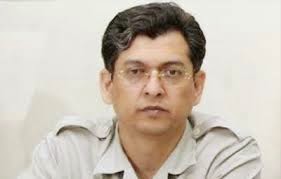To what extent does the Bangladesh government's continued suspension of Facebook have anything to do with containing violence or stopping those intent on committing terrorist acts from communicating with each other?
Probably not very much, if at all.
One should perhaps give the government the benefit of the doubt that its original decision to restrict Facebook immediately after the appellate division on 18 November finally
confirmed the execution of Salauddin Quader Chowdhury and Mujahid, each of whom were leading members of opposition political parties, may well have been security related.
Whilst, the alleged risk of widespread and planned violence perpetrated by supporters of these two men was undoubtedly overblown by the media (much of which has been reporting dubious claims of alleged plots told to them by often unnamed detective branch officers) there has in the past been violence following decisions relating to the International Crimes Tribunal.
This was particularly the case following the sentencing of Sayedee to the death, where protests resulted in dozens of deaths (though many/most reportedly at the hands of law enforcement agencies themselves in response to the unrest.)
Moreover, the unrest was reportedly in part incited by the distribution on Facebook of
photoshopped pictures of the moon with images of Sayedee's face on them - an indication of his supposed innocence.
So the governments decision to immediately restrict the use of Facebook, as well as its messaging service which the country's intelligence agencies reportedly do not have the capacity to access, may well have been reasonable.
However, any risk of violence that there was would have quickly subsided a few days after the executions.
Eleven days later there seems to be no continued security justification.
The militants or violence instigators who supposedly were using the Facebook messaging service to communicate with each other, would very quickly have moved to other forms of encrypted communication which are very widely available,
or would otherwise have set up widely available work-arounds.
Indeed, the Facebook ban did not stop
the recent attack on the Shia mosque, again claimed by Islamic State, which caused the death of one person.
So what purpose might the continued Facebook ban have? It appears to be useful for the government in two ways.
Linking the security threat to the opposition parties
First the ban helps to bolster the government's claim that recent violent attacks in Bangladesh are the responsibility of the opposition parties - the Bangladesh Nationalist Party (of which Chowdhury belonged) and the Jamaat-e-Islami (for which Mujahid belonged).
Ever since the killing of the Italian citizen, Cesara Tavella, at the end of September 2014,
the government has sought to blame this and the other various killings claimed by the Islamic State upon these two opposition parties, and has been using its law enforcing authorities to support this position.
In particular the government has tried to argue that the attacks claimed by Islamic State were not done by operatives linked to the Syrian based organization, but by people - from the BNP and the JI -
seeking to stop the war crimes executions.
The continuation of the Facebook ban, which was initiated to deal with a security threat triggered by the execution of a BNP and a Jammat Leader, helps support the government contention that it it these parties (seeking revenge for the executions of their leaders, or simply trying to impede the process of trials) who are country's real security threats, and not Islamic State or others.
Stopping the publication and distribution of dissent
The second and possibly more significant reason is to prevent the publication and distribution of critical commentary about the government and contemporary politics in the country.
Bangladesh's media now has become highly restricted.
The country's largest advertisers have been banned from advertising in Prothom Alo and the Daily Star, the country's leading Bengali and English language newspapers respectively, causing them significant income losses, in an apparent attempt to intimidate them, and force them into line or indeed out of business.
Other independent papers have also read the writing on the wall. Investigative journalism critical of the government's activities is now rarely seen in any newspaper - and it certainly has now become impossible for newspapers to publish critical commentary on the International Crimes Tribunal. Bangladesh TV is controlled to an even greater extent - with those seen as critical of the government rarely being invited to speak on the chat shows, the only place that Bangladesh television had allowed some kind of critical commentary on the government's conduct.
In this situation, Facebook had become a key place where Bangladeshis increasingly turned to write, read and distribute critical commentary. The social media site had turned into an important space for critical writing and reading on Bangladesh politics.
The Bangladesh government has for some time been concerned about Facebook as a place for dissent, and threats around the International Crimes Tribunal (perhaps initially justified) provided it an excellent opportunity to close it down on a more permanent basis.
The continuation of the banning of Facebook is just a reflection of the government's desire to control all forms of perfectly legitimate dissent in Bangladesh.
Don't expect the government to open it up soon.




















